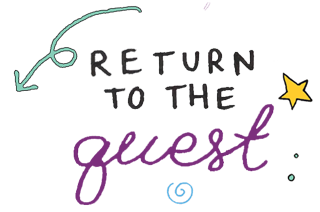
Aspirations come alive!
| Objective: To envision a completely different universe in order to reveal the hidden dimensions of the concept of aspiration! |
Duration: 30 to 90 minutes
Material:
- Sheets of paper and pens
- Coloured pencils and markers
Instructions:
Thought experiment: Imagine a world where... all your aspirations came true! What would this world look like? What would this world look like? Would it be fantastic or horrible? How would this world be different from ours? How would life change? Would you want to live in this alternate world? Why or why not?
...
- Think about the effects. As you start brainstorming, it may strike you that this alternative world sounds pretty nice. After all, what could be so bad about everyone’s dreams getting realized? Wouldn’t that make for a happy, positive world full of hope? Hmm, perhaps it depends on what people aspire to be and do, and how these ambitions come alive. What might be the consequences of all aspirations coming true? If you want to build your dream house, what could be the downsides? If you want to go to school to study every subject that interests you, how could that be bad? What if your ultimate desire is to be free to do nothing at all? Make a list of three positive and three negative points of a world where all your aspirations could come true, and add reasons to explain your impressions.
- Variation: Consider how this world might affect life in different contexts, such as: relationships, school, jobs, government, art, religion, the environment, etc.
- Create a character. To take your thinking one step further, think about how this alternative world might affect different people in society. What if one person’s achievement of a dream interfered with another person's aspirations? Draw a diagram of five very different people in this imagined world, and list their aspirations next to the names you have given them. Now compare them to figure out how they might help or harm each other’s abilities to achieve their ambitions. For example, perhaps a sly criminal’s dream to realize the perfect crime flies in the face of a judge’s aspirations to create a crime-free society! Describe the unique experience of each of your five characters in as much detail as possible—what they are like, what their aspirations are and how they want to achieve them. Then, tell the story of how these characters’ aspirations affect each other, for better… or for worse. Is your story becoming a dramatic play… or a giant comedy of errors?
- Represent this world. Based on your reflections, imagine how you could represent your impressions of this alternative world—through a drawing, a collage, a diagram, a poem, or a dance. Your style can be realistic, abstract, comic, dramatic, etc. How could this world help us better understand—and even improve—our own?
...
Bonus: Have you ever heard of a dreamcatcher? These handmade Indigenous crafts made of willow branches, feathers and beads were traditionally hung above children’s beds as a form of protection. According to Ojibwe legend, dreamcatchers are inspired by the idea of protective spiderwebs that can seize hold of anything harmful that comes across them. What if this idea could apply to the aspirations you have as well? Perhaps the characters you created aren’t the only ones whose aspirations get helped and harmed by what is around them! Take a few moments to think about a few of the aspirations you have for yourself—they can be big bold dreams or simple little wishes. Now, imagine you could create a protective web that was able catch all the "dream-snappers," that is, all the possible things, ideas or people who might threaten or hurt your aspirations. What might get seized by the web and why? If you were to rank them, which "dream-snappers" seem the most dangerous for your aspirations and why? Once you have some ideas, think of how these risks might be reduced by a different form of protection—"dream boosters," that is, the things, ideas and people who can help make your aspirations come true. |

| Tricks for tots: Did you know that the word "aspiration" has two special but very different meanings? On the one hand, aspiration means the hopes we have to achieve something… and on the other, it means the very action of breathing in! Do you think that having dreams can be as important as the breaths you take? Let’s see what happens if we put these ideas together. Find a quiet place where you can sit comfortably for a few minutes. Now take a long deep breath, and let your mind think up one of the dreams you have for yourself. Take a mental picture of that dream then exhale slowly. What did you see in your head? Did you dream up a really cool playroom you’d like to have, a wacky adventure you’d like to take, a hero you’d like to meet? Try again a few times until you have imagined a bunch of different aspirations. Which ones got you most excited or inspired, and why? Did those feelings change the way you were breathing? Can picturing your dreams take your breath away? |
| Tips for teens: Sometimes when we get asked about our aspirations, it can feel more stressful than scintillating. After all, the seemingly simple question "What do you want to be when you grow up?" goes straight to the heart of our search for identity. If you don’t have a straightforward answer, what does that say about your sense of self? In philosophy, one theory that is very sensitive to this reality is called "narrative identity"—the idea that we can shape our perception of who we are by telling an unfolding story about our lives that gives it a feeling of integrity and purpose. We can frame how we have experienced our past, recount how we are encountering the present and imagine how we might undergo the future… until those next chapters get told as we live our way into them! Try this out by writing a mini-biography of yourself in the third-person, as if you were a wise and gentle observer looking in from the outside! How might this narrator tell the story of how you’ve been, what you are now and who you are becoming? What big events and experiences should make it in your biography and why? Conversely, what parts of your life don’t deserve to be part of your narrative, and how can you justify leaving them out? What aspirations do you want to highlight and for what reasons? For fun, play around with a book title and some chapter names to see how you might perceive yourself differently—and even more generously!—when you become the compassionate narrator of your own life. |
Share your creative reflections by sending them via email.
Include photos of your projects and notes of your thoughts, as well as your first name and your age!


